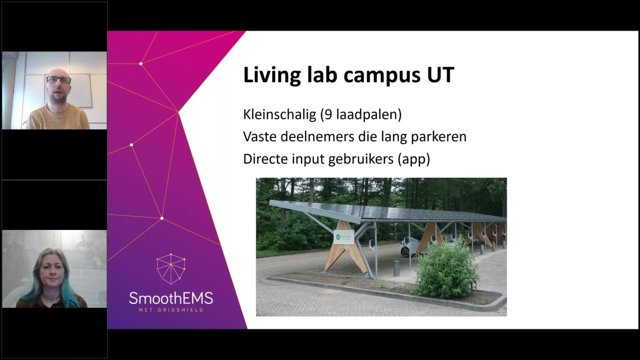description
Increasing penetrations of intermittent renewable energy generators, such as solar PV, electrification of the energy demand (e.g. heating provided by electric heat pumps and electric mobility) increase the probability of overloaded electricity grids. Investments in local grid infrastructure can be avoided by better matching supply and demand locally. To achieve this, system wide innovation and integration is required in which an energy management system (EMS) fulfils a central role.
Within this project, together with a broad spectrum of partners, we will research an EMS that ensures that buildings optimize their energy profile such that it reduces the load on the local grid to avoid overloading in the future. To this end, optimal and transparent control of several devices will be researched in order to shape the energy profile of buildings. But foremost, the EMS also needs to be robust to errors and reliably operate under all conditions to avoid power outages in the future. To reach this goal, methods will be researched to create an “immune”-system for the electricity grid, such that the EMS can still sufficiently operate during cyber-attacks or when subsystems or communication channels fail. Human Energy Behavior Influence Tools (HEBITs) will be developed to unlock more flexibility for the energy system in an end-user friendly manner.
The result of this project will be SmoothEMS, a modular and scalable EMS that avoids grid congestion and ensures reliability of our energy system throughout the energy transition, while incorporating the needs of the end-users of energy. SmoothEMS will be tested in Living Labs, which are located at locations of project partners. A large test will be conducted at a.s.r. (Utrecht) where EV charging, solar PV production, building energy demand and storage will be balanced.
Involved partners next to the Decentral Energy Management research group:
- AmperaPark (green EV charging solution provider), MENNEKES (manufacturer of EV charging equipment), and a.s.r. (insurance company, test-site provider), foundation ElaadNL (research on electric mobility in the Netherlands), and Kropman (installation of equipment, system integrator).
Regular updates of this project can be found on the project website, linked here (in Dutch).
Time period: 2021-2025
pilot sites
The world’s largest, bidirectional charging car park for electric cars in Utrecht is also pilot site in this research project. More information on the opening of this car park can be found via this link.


